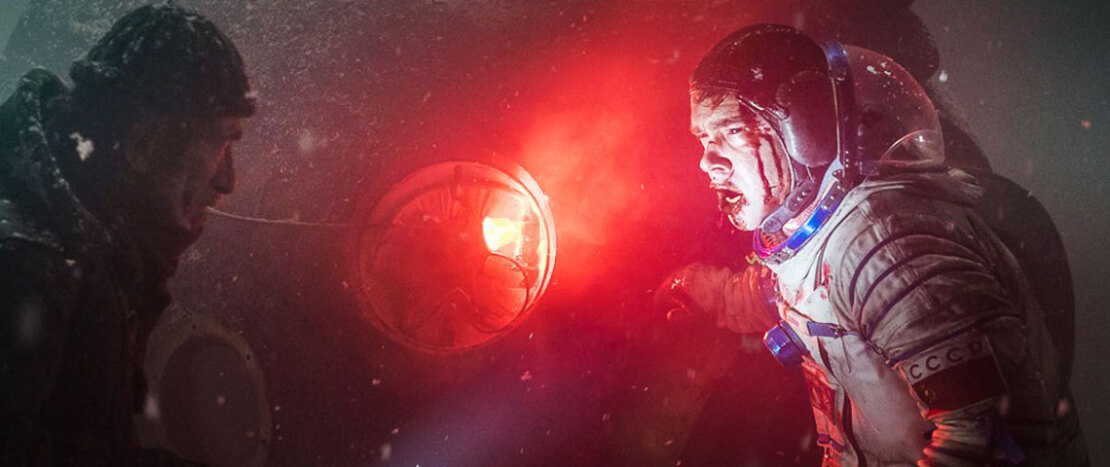Sputnik
When Cosmonaut Konstantin Veshnyakov crash lands to earth, he doesn’t do it alone. Hidden inside his body, it seems that a dangerous has taken up residence. Now quarantined in a remote Russian facility, its commander reaches out to unorthodox psychiatrist Tatyana Klimova to help him. With the organism reluctant to leave its host, can she save Konstantin’s life from both the monster and those who would like to weaponise it?
… Sputnik is a refreshing sci-fi horror remix built without being reliant on many of the ingredients you’ll recognise.
From its opening ammonia-infused frames, director Egor Abramenko’s sci-fi horror knows that it is walking on hallowed ground. Keen to distance itself from Ridley Scott’s magnum opus 1979’s Alien, Sputnik starts with the monster already inside its victim, with the intention of telling a very different tale. With its deliberately slow beginning which allows you to grow and sympathise with its characters, this is a movie that understands that in order for you to care, it has to draw you into is repressively 1980’s environment. From its brutalist architecture, dour lighting and grey film stock which offer no modern-day contrast, filmmaker Egor Abramenko has understood that, like Alien before it, if you don’t have the right atmosphere then you don’t have anything.
As such, the central triangle of Oksana Akinshina as Tatyana, Pyotr Fyodorov downed cosmonaut Konstantin and Fedor Bondarchuk‘s Colonel Semiradov are believably rubbed into the narrative. Often hinting at the daily repression felt in 1980’s Russia, much of their dialogue believably alludes to life beyond their isolated facility.
Further mixing in aspects of Denis Villeneuve’s Arrival and David Fincher’s Alien 3, Sputnik is a film that doesn’t rely upon dripping special effects to make its point. Successfully escaping a third act that involves people running down dark corridors, this is a movie with personal stakes beyond just it characters’ survival. Tatyana wants professional redemption, Konstantin want to meet his orphaned son and Semiradov wants military glory and however high it’ll take him. As such, when the plot unfolds it does so because of the characters and their competing agendas and not because the script just wills it.
In an increasingly layered story that is more Dr Jekyll and Mr Hyde than hide and seek, Sputnik is a refreshing sci-fi horror remix built without being reliant on many of the ingredients you’ll recognise. With every one of its characters becoming even more compromised, its third act builds to a satisfying climax, and one which carries one further gentle belly punch in its epilogue.
But what about the monster? The CGI, the special effects and all that stuff? -Does it look like the Alien? Well, folded beautifully into the film’s brown and greenish patina, both the effects and the monster are a seamless blend with the film’s environment. Yes, it does look cool – but like Ridley Scott’s original blue-collar space opera, the creature is the catalyst for drama, not the movie’s raison d’etre. -Will you be scared? -Will anyone in space be able to hear you scream?
Yes and no.
Sputnik is both an engrossing story and movie made on its own terms with a suitably scary plot to offer. If you are indeed looking for another Alien sequel then there are plenty of other ‘echo chambers’ available, but thankfully Sputnik‘s rings refreshingly true.









